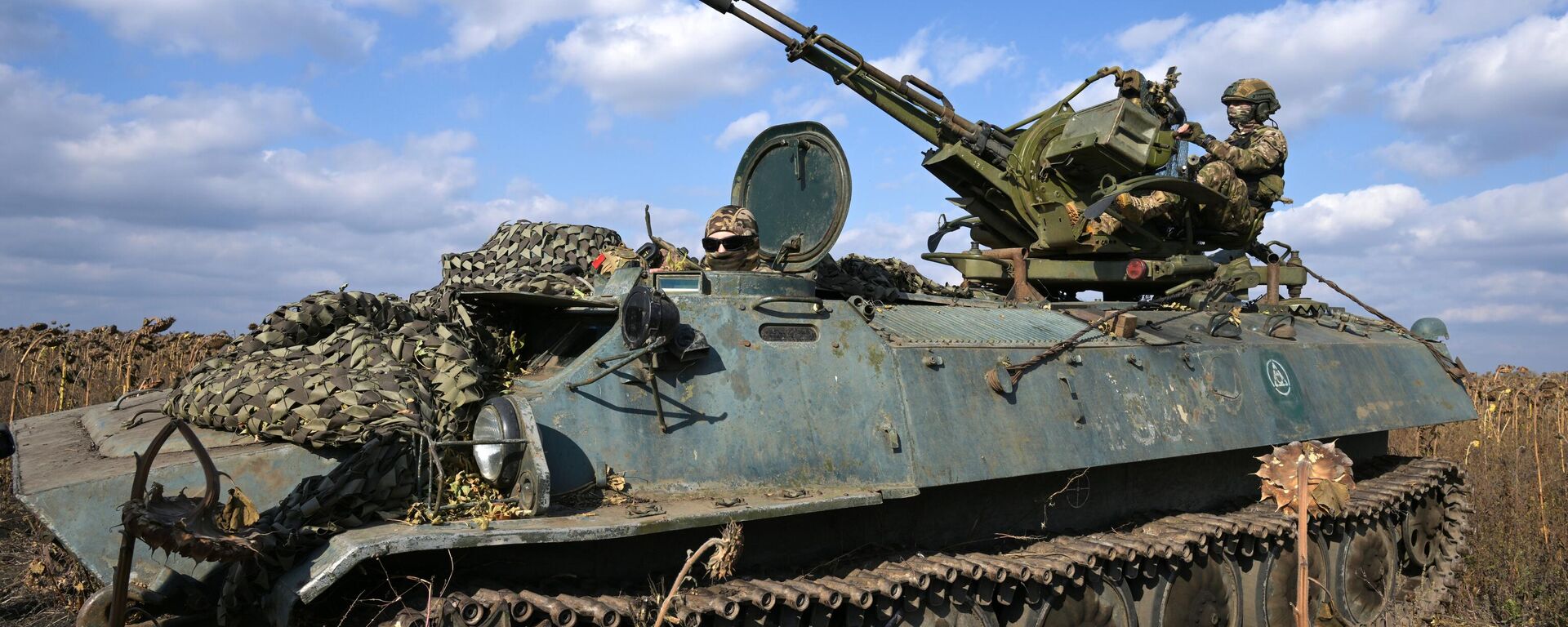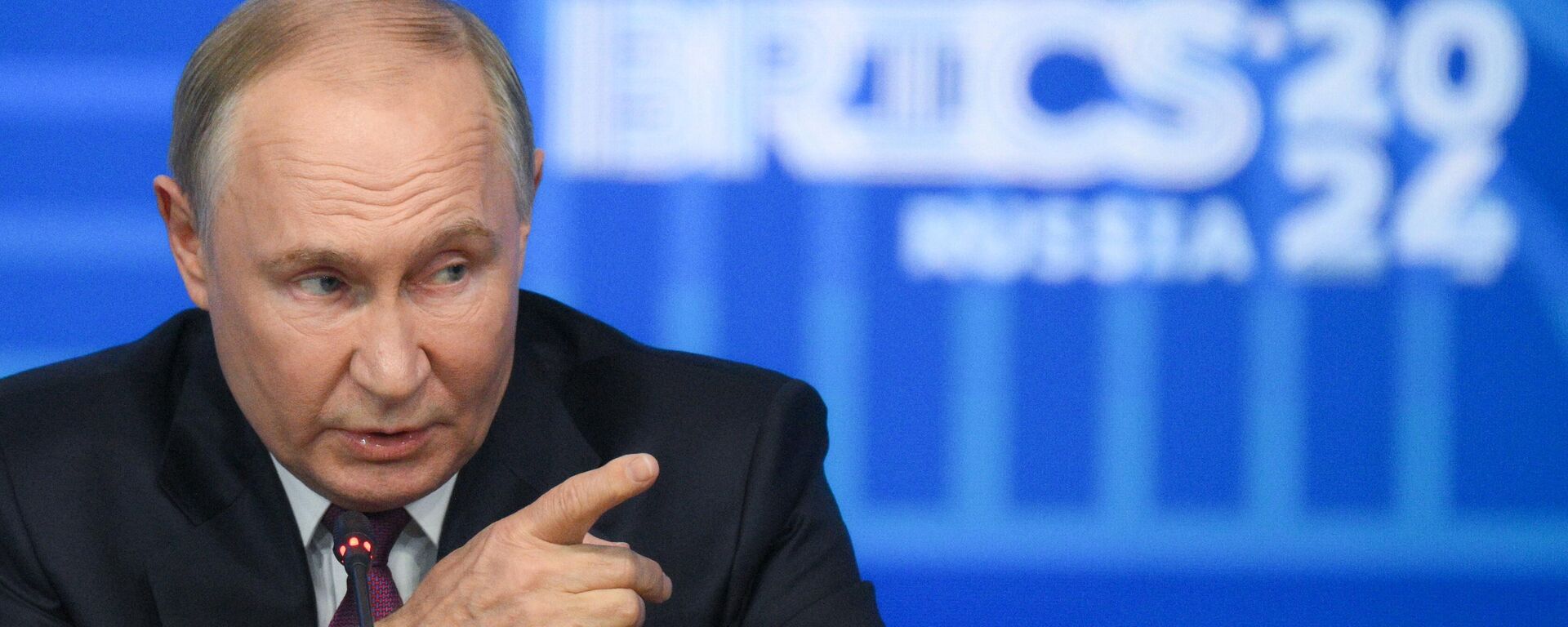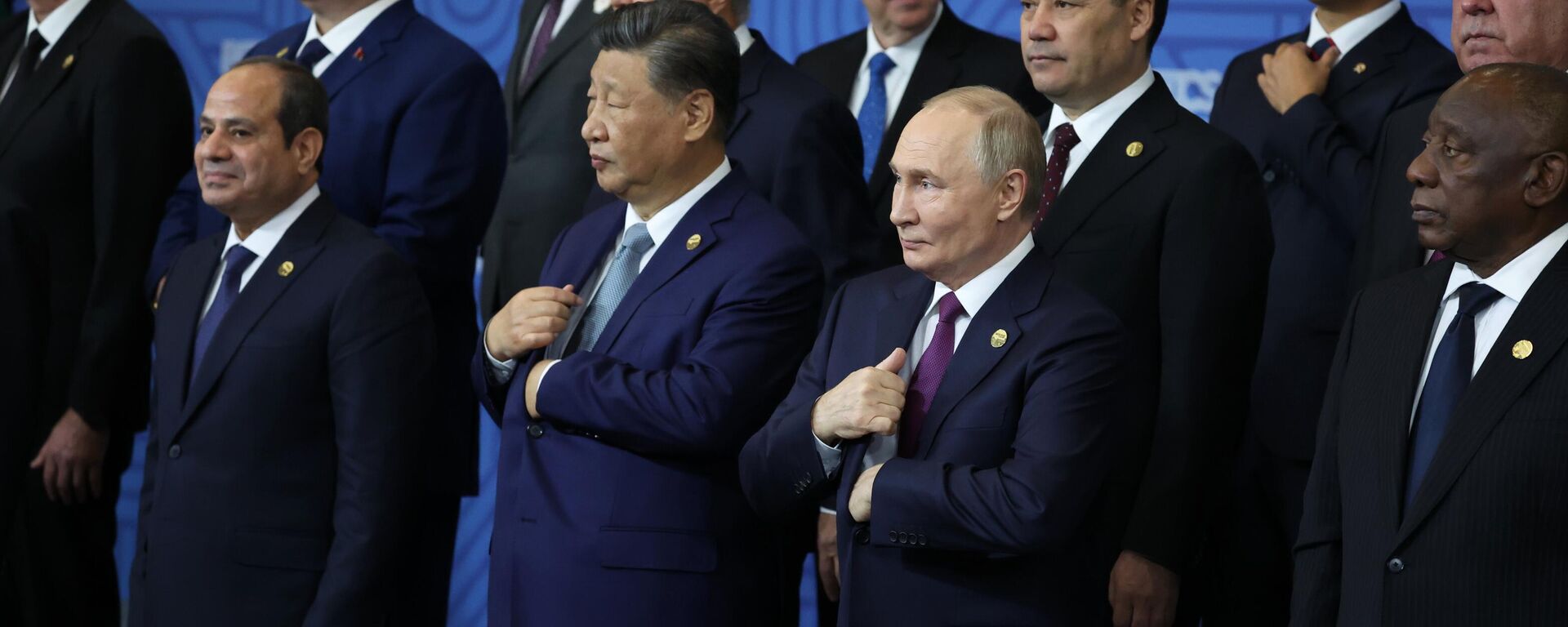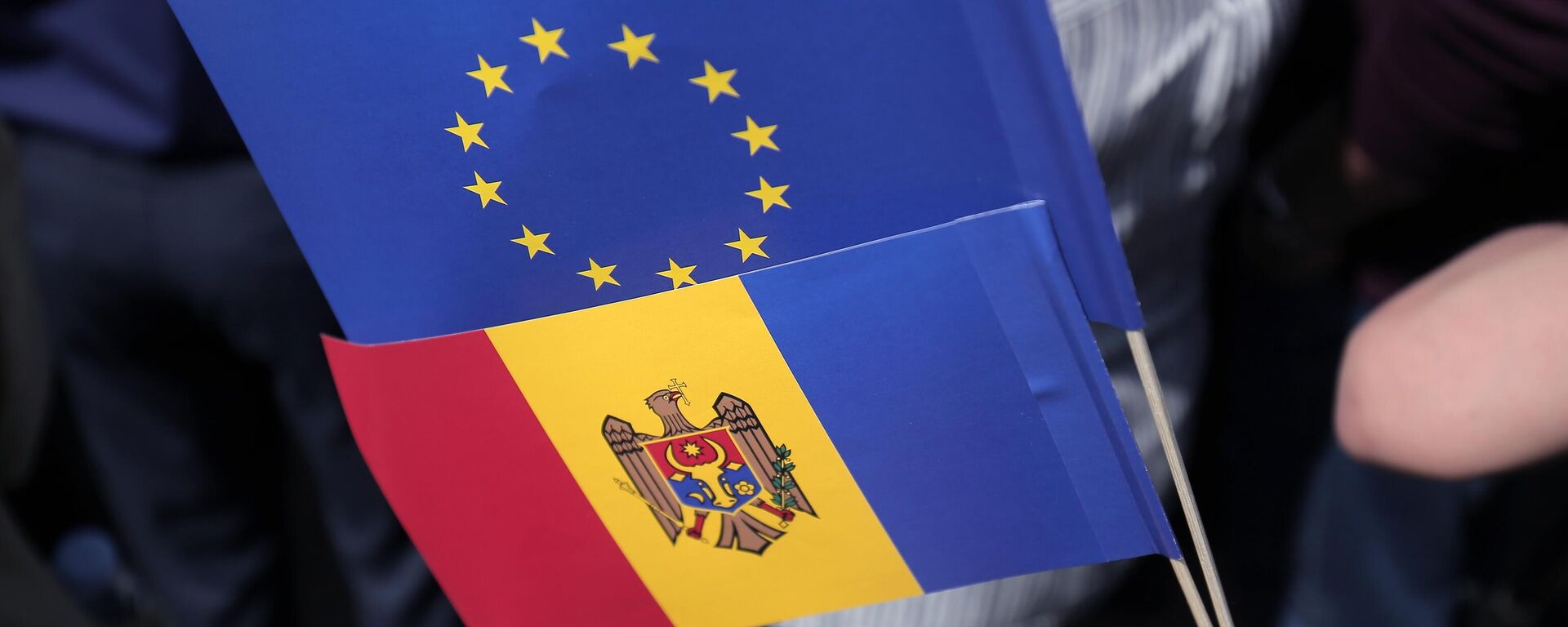Russia Will Adequately Respond to Aggression of NATO, Member States - Lavrov
13:25 GMT 05.11.2024 (Updated: 15:49 GMT 05.11.2024)

© Sputnik / Stringer
/ Subscribe
MOSCOW (Sputnik) -Russia’s foreign policy chief Sergey Lavrov delivered comments on the most pressing issues of global politics, including the Ukrainian crisis, Middle East escalation, BRICS future plans, and the situation around Transnistria.
NATO should not be mistaken, as Russia will adequately respond to the aggression of the alliance or its member states, using all means to ensure security, Russian Foreign Minister Sergey Lavrov told Sputnik.
"Our opponents should not be mistaken. In the event of aggressive actions by NATO or individual member states against our country, adequate countermeasures will be taken in full compliance with Russia's sovereign right to self-defense and the use of any means to ensure its security, as enshrined in the UN Charter. And no one will be safe either beyond the Atlantic Ocean or the English Channel," Lavrov said.
If Western long-range weapons are used by Kiev to strike deep into Russian territory, then "this will mean that not only Ukraine, but also NATO countries are fighting Russia openly; (they are) no longer embarrassed to hide facts about 'mercenaries,' 'volunteers,' 'instructors' and other guys 'under a false flag'", the minister added.
Lavrov explained that the US ruling elite, driven by russophobic consensus, considers Ukraine a crucial part of the hybrid warfare against Russia. Nevertheless, Russia is ready for equal dialogue with the US as soon as the latter shows its readiness for honest negotiations.
Russia and the US are both nuclear powers, which implies a special responsibility that mandates diplomatic contacts. Despite the deep diplomatic crisis, Washington is not ready to severe ties with Russia - and if this mindset endures, a new ambassador to Moscow will be appointed in due time.
On Ukrainian Attempts to Coerce UN Secretary General
Kiev is putting pressure on UN Secretary General Antonio Guterres to take Ukraine's side in the conflict with Russia, by adding him to the Ukrainian neo-Nazi website Myrotvorets (Peacemaker), Lavrov added.
"As far as we know, the UN secretary general was subsequently excluded from the database of the Ukrainian website Myrotvorets. However, the fact remains that Kiev, demonstrating its inherent open disrespect for the UN Charter, continues to put pressure on Antonio Guterres to force him and the entire UN Secretariat to finally take the side of Ukraine and its Western sponsors," Lavror said.
Such a step is a direct violation of the UN Charter, namely paragraph 2 of Article 100 of the document, "which prohibits any member state from attempting to influence the secretary general or other UN representatives", the minister added.
On Black Sea Shipping
Russia is studying proposals from Turkiye and UN Secretary General Antonio Guterres on shipping in the Black Sea, but there is no evidence that Russia's interests will be taken into account, Lavrov stressed.
"As confirmed by Russian President Vladimir Putin during a meeting with [Turkish President Recep Tayyip] Erdogan on the sidelines of the Kazan BRICS summit, we were given proposals to continue contacts related to shipping in the Black Sea. UN Secretary General Antonio Guterres has similar ideas. They are currently being studied by the competent agencies. But so far we have not found anything new that would indicate a willingness to take Russia's interests into account," Lavrov said.
Russia Will Use BRICS Capacities to Mediate Mideast Crisis
Moscow intends to continue working to solve the Palestinian problem and will use the potential of the BRICS, the Russian foreign policy chief stated.
"The crisis around the Gaza Strip has become the catalyst for all these processes. The sooner it is resolved, the sooner the situation in the Middle East as a whole will begin to improve. Therefore, we will continue to work collectively with our partners in the interests of a just solution to the Palestinian problem on a generally recognized international legal basis. We will make the most of the potential of the BRICS," Lavrov said.
From the first days of this crisis, which began in October 2023, the BRICS countries have stood in solidarity in defense of the rights of the civilian population of the Gaza Strip, agreeing on November 21, 2023 at an emergency summit of the association, a call for an early ceasefire and humanitarian assistance to the victims, Lavrov recalled.
"This common position was confirmed in the declaration of the Kazan summit, and Palestinian President Mahmoud Abbas took part in its expanded part," Lavrov said.
The resolution of the crisis around the Gaza Strip will help improve the situation in the Middle East, Lavrov told Sputnik.
US efforts to negotiate an agreement between Israel and Hamas regarding a ceasefire and an exchange of prisoners have reached a dead end, and the situation in Gaza continues to deteriorate, the minister said, adding that the fire of a regional conflict is flaring up and advancing to Lebanon, Syria, and Iran.
"The catalyst for all these processes was the crisis around the Gaza Strip. The sooner it is resolved, the sooner the situation in the Middle East as a whole will begin to improve," Lavrov said.
On BRICS Possible Development Track
Russia continues to coordinate the work on the list of BRICS partner states and plans to publish its results by year-end, Lavrov added.
"Its parameters [categories of BRICS partner states] were approved at the [BRICS Kazan] summit. As chair, we continue to coordinate work in this area. We expect to publish its results during our presidency by the end of this year," Lavrov said.
The summit in Kazan has become one of the landmark international events not only this year but also recently, Lavrov added.
"Its successful holding has clearly highlighted the senselessness of attempts to isolate Russia internationally, undertaken by our foreign policy opponents as one of the elements of pressure on our country," Lavrov said.
On Situation Around Transinistria
The 1992 agreements on the principles of a peaceful settlement in Moldova allow for an increase in the number of Russian military personnel on the left bank of the Dnestr, but this is not necessary, Lavrov stated.
Russia sees the main task at the current stage in maintaining peace and tranquility on the Dniester as the main prerequisite for resolving the Transnistrian problem by political and diplomatic means, the minister said, adding that this mission is carried out by the Joint Peacekeeping Forces with the participation of the Russian contingent.
"The 1992 agreements on the principles of a peaceful settlement allow for the possibility of increasing the number of Russian military personnel on the left bank of the Dnestr, but there is no need for this," Lavrov said.
Commenting on the situation in Transnistria, the minister expressed the hope that Chisinau has enough common sense to avoid steps that could lead to the escalation of the situation.
The pause in the work of the negotiating mechanism has lasted since October 2019, Lavrov said, adding that the main reason is the diametrically opposed positions of Chisinau and Tiraspol on almost all key aspects of the settlement.
"Against this background, there are arguments that the regional context requires the creation of new dialogue platforms on the Transnistrian issue. The value of the '5+2' format is questioned. We do not agree with this formulation of the issue and believe that external assistance to direct dialogue between Chisinau and Tiraspol is necessary," Lavrov concluded.
On Post-Soviet Geopolitics
Commenting on post-Soviet geopolitics, Sergey Lavrov stressed that while Russia is not pushing Armenia and Azerbaijan to conclude a peace treaty hastily, attempts by the US and EU to exclude Moscow from the peace process only aggravate security threats in the region.
Meanwhile, the Russia-Kazakh partnership is thriving despite US attempts to estrange Astana and Moscow. Lavrov added that Moscow notices the active work of Western emissaries in compelling Kazakhstan into compliance with anti-Russian sanctions, and is aware of the threats of Western sanctions facing Kazakhstan.
Meanwhile, US statements about Russia’s interference in the elections in Georgia are false, and Moscow is ready for further rapprochement with Tbilisi despite Western attempts to cast recent elections as a choice between Russia and the West.





